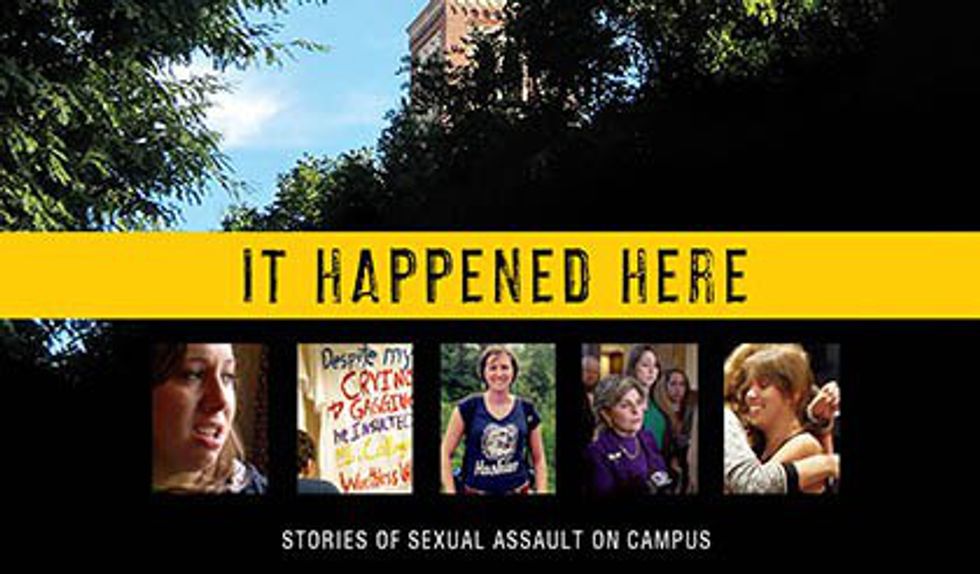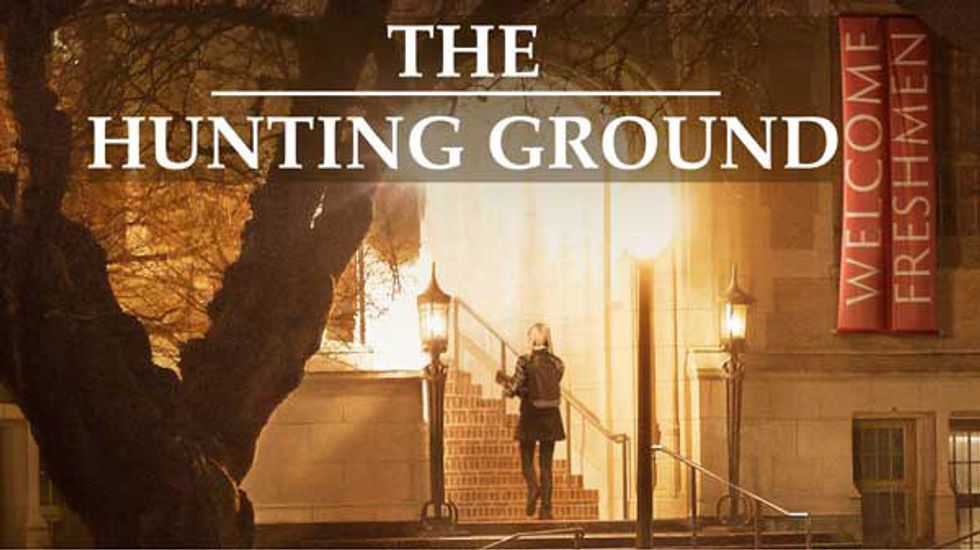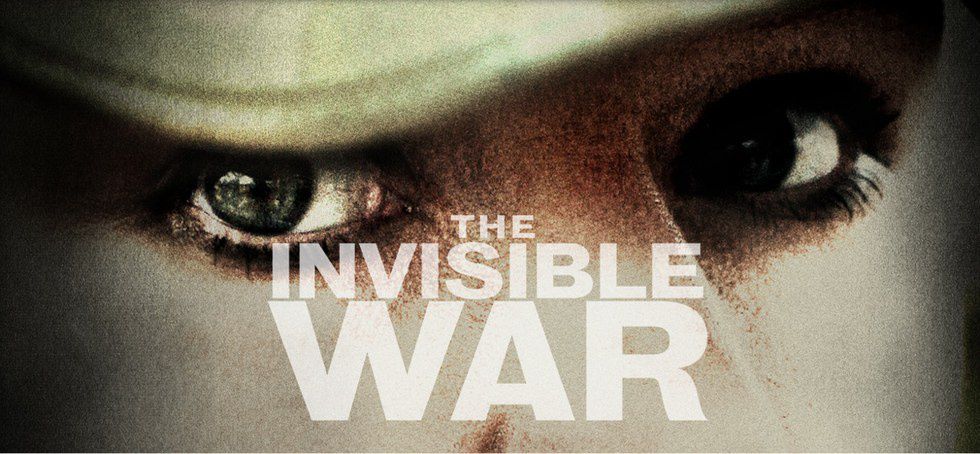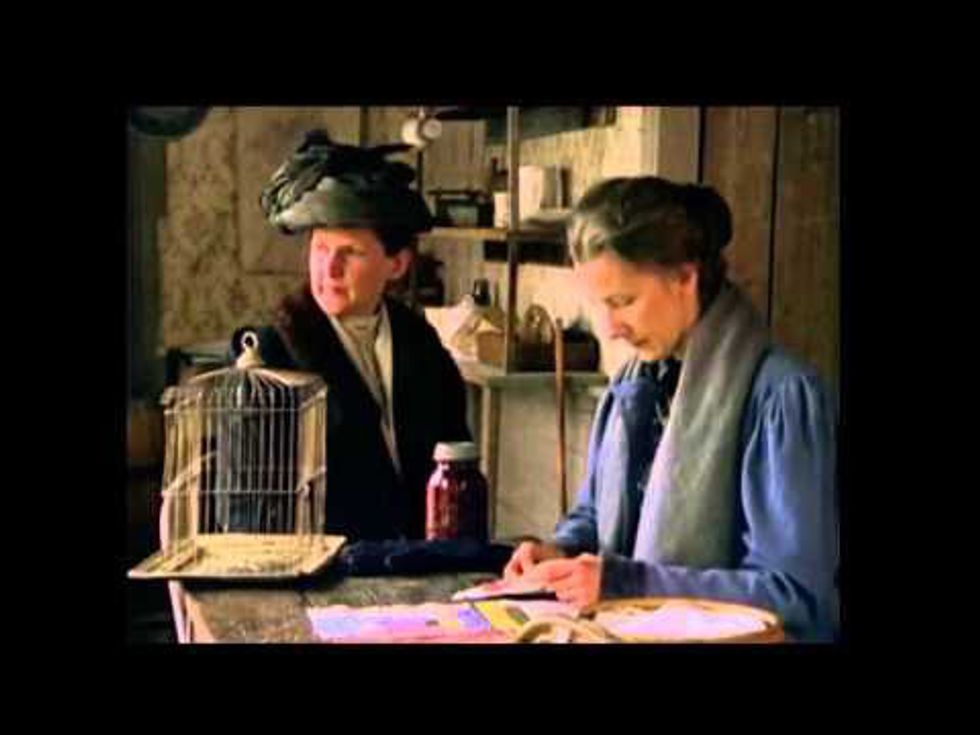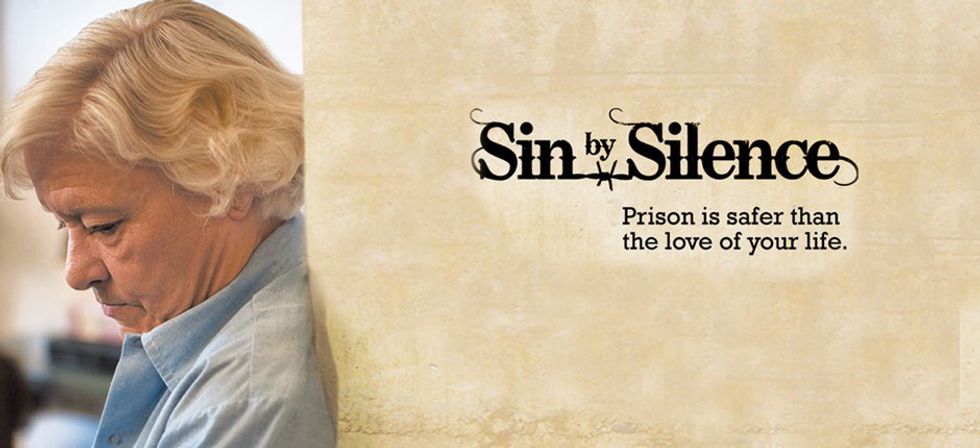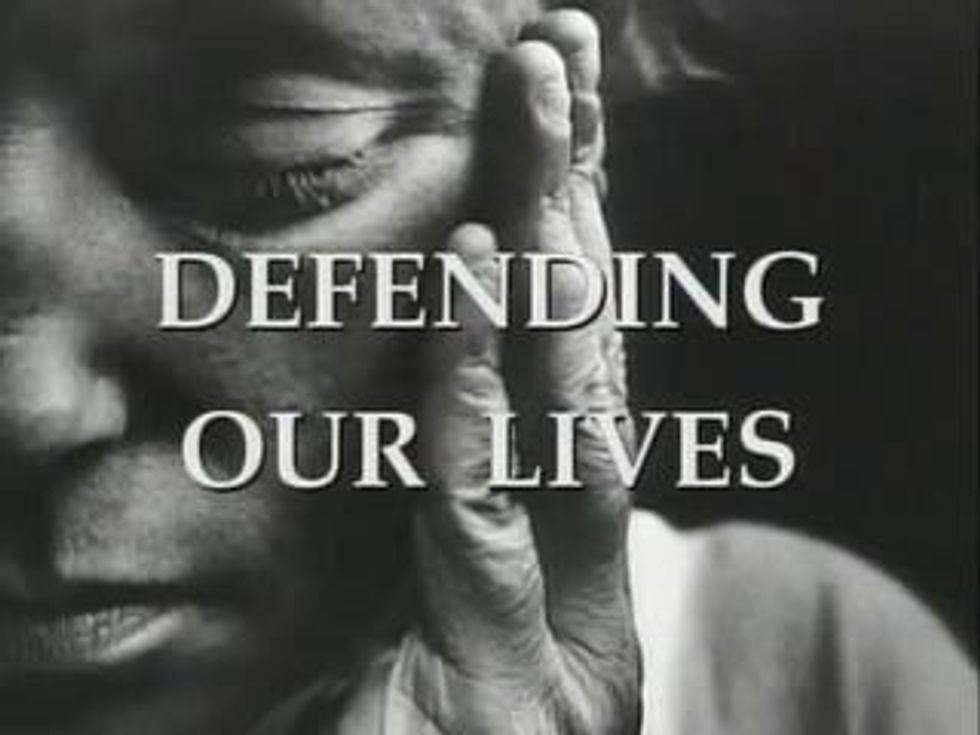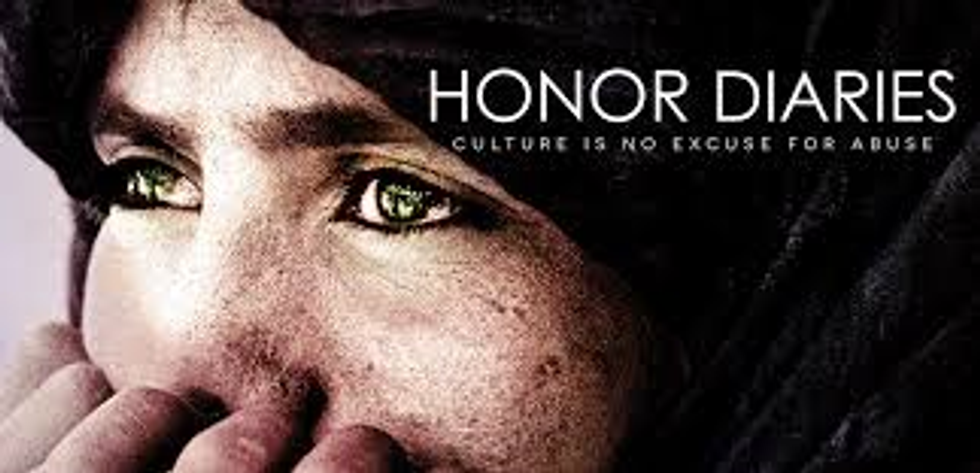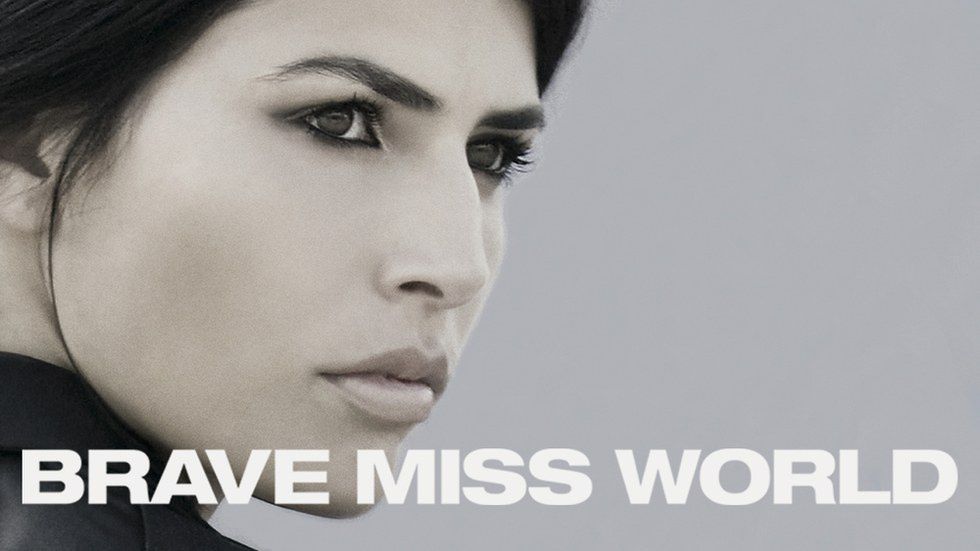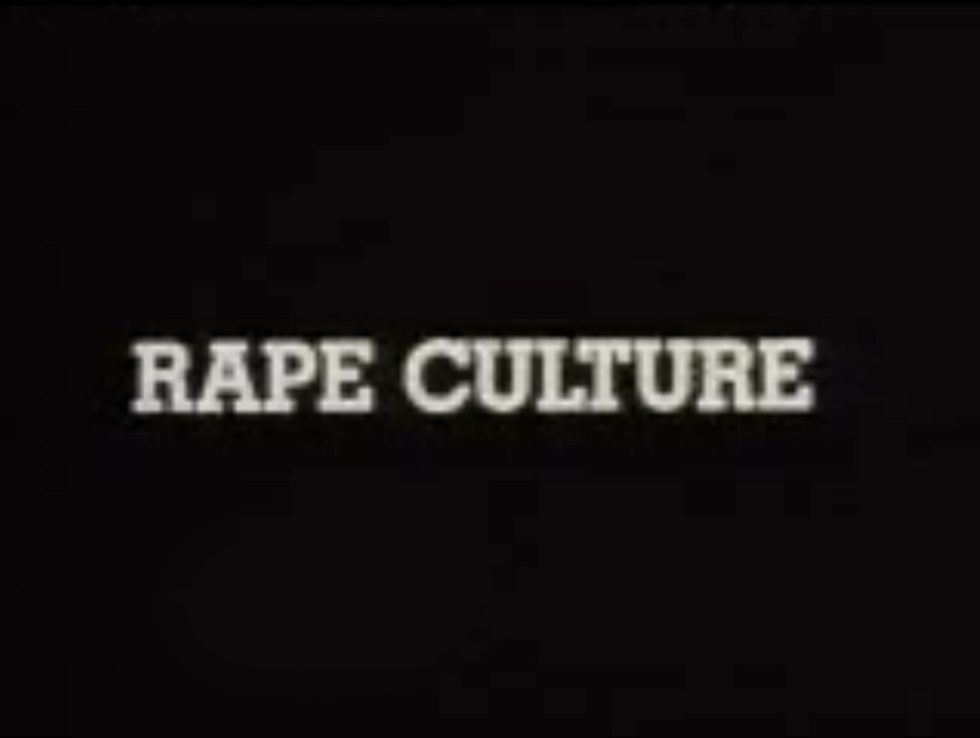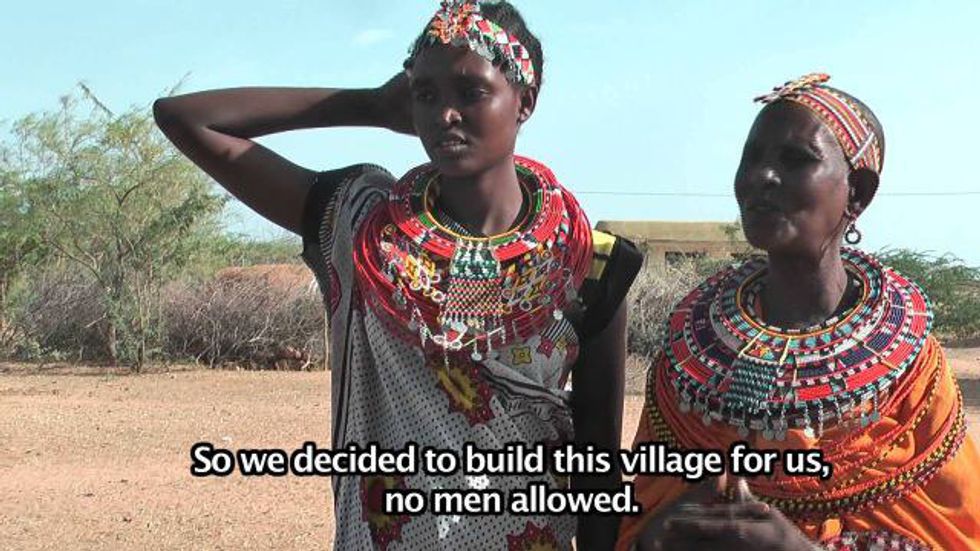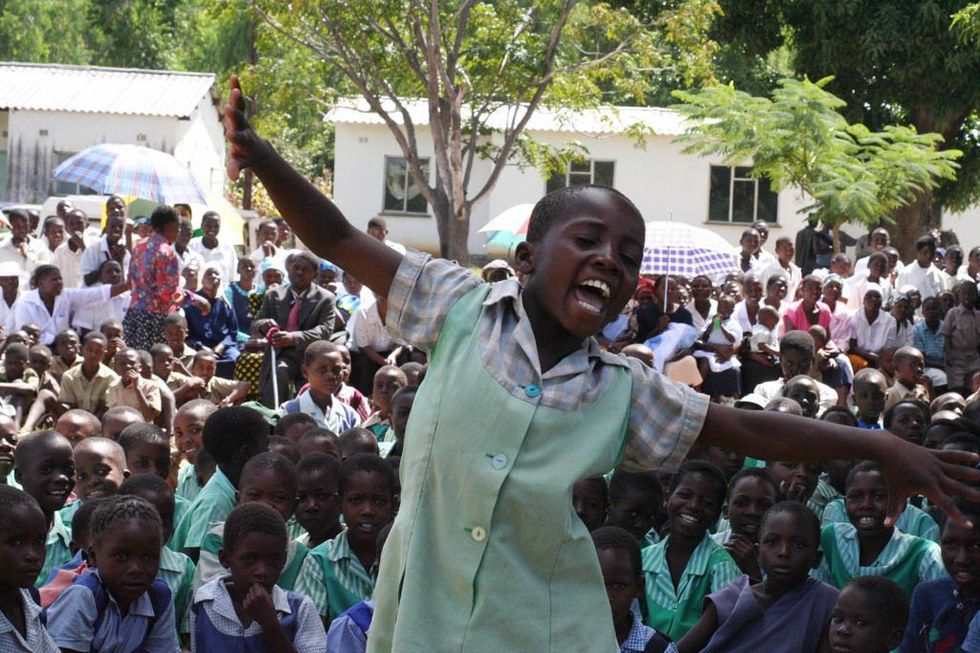On Sept. 23, Netflix started streaming the powerful documentary Audrie & Daisy, exploring two parallel cases of sexual assault on young girls on opposite sides of the country. Neither girl was able to find justice in the juvenile court system, and only one is still alive to tell her story.
Nevertheless, these girls and their families deserve for you to hear their stories. If you find that their stories give rise to your curiosity (and hopefully outrage), there are plenty more films for you to learn more about the prevalence of violence against women from all around the world. The following are just a few:
1. "It Happened Here" (2014)
This documentary from director Lisa F. Jackson and producer Marjorie Schwartz Nielsen follows five sexual assault survivors' stories. It explores the prevalence of sexual assault on American college campuses and the institutionalized culture of silence surrounding them. The film was an official selection for ten film festivals both in the States and abroad.
2. "The Hunting Ground" (2015)
The documentary written and directed by Kirby Dick and produced by Amy Ziering, tells the stories of Annie Clark and Andrea Pino who filed Title IX complaints against the University of North Carolina, Chapel Hill in response to the university's response to their sexual assault cases. The film premiered at Sundance and features the original song "Till it Happens To You" by Lady Gaga, recorded for the film's soundtrack.
3. "The Invisible War" (2012)
This documentary is also written and directed by Kirby Dick and produced by Amy Ziering and is about the prevalence of sexual assault in the United States Armed Forces. The film follows several major sexual assault scandals in the past 20 years, but the most time is given to the case Cioca v. Rumsfield, where veteran Coast Guard Seaman Kori Cioca and other veterans who suffered sexual assault brought a civil suit against the Department of Defense for not addressing sexual assault in the military adequately.
The documentary won several prestigious awards, including the Sundance Audience Award and Emmy for Best Documentary Feature.
4. "A Jury of Her Peers" (1980)
The only non-documentary featured on this list, this is adapted from the famed short story by Susan Glaspell of the same name and is directed by Sally Heckel. The story follows the murder of John Wright (possibly based on the real life murder of John Hossack in 1900) and the parallel investigations of the male sheriff and neighbors and their wives.
The short story is an example of early feminist literature and the film won the Academy Award for Best Live Action Short Film.
5. "Sin By Silence" (2009)
The documentary by Olivia Klaus follows the stories of Convicted Women Against Abuse, the first inmate-initiated and led support group. The group was started in 1989 by Brenda Klubine in order to give support to women who, having lived their worst nightmares, had killed their abusers and were subsequently imprisoned in the state of California.
The film went on to inspire AB 1593 and AB 593, The Sin by Silence Bills, which improved penal codes for domestic violence victims and led to the freedom of over 7,000 domestic violence survivors.
6. "Defending Our Lives" (1993)
This short documentary film directed by Margaret Lazarus and Renner Wunderlich, which follows the stories of four women who were imprisoned for killing their attackers. These survivors are also 'Battered Women Fighting Back!' a grass-roots organization dedicated to exposing domestic violence as a human rights violation, and advocating for judicial and legislative reform.
The film won an Academy Award for Documentary Short Subject.
7. "Honor Diaries" (2013)
The documentary directed by Micah Smith follows the stories of nine women in Muslim-majority cultures that engage in gender inequality and oppression. These women were called to action in the wake of the Arab Spring and speak in depth about systematic types of abuse such as lack of right to education, genital mutilation and forced marriage. The film also serves as a platform for survivors and activists to make their voices heard.
The film premiered at the Chicago International Film Festival and won the Interfatih Award at the St. Louis International Film Festival.
8. "Brave Miss World" (2013)
The documentary directed by Cecilia Peck tells the story of Linor Abargail, an Israeli beauty pageant participant who became Miss World in 1998. Seven weeks before that, she was raped at knife-point by her travel agent Uri Shlomo Nur in Milan, Italy. She initially reported the assault to the Italian authorities, but the case was released due to lack of evidence. The film also tells of Abargail's subsequent activism after she became a lawyer.
The documentary was nominated for a Primetime Emmy and the Audience Award from the Chicago International Film Festival.
9. "Rape Culture" (1975)
Another documentary directed by Margaret Lazarus and Renner Wunderlich, this film is credited with the first use of the term 'rape culture' in its modern context and outlines the term through the voices of survivors, rapists, advocate networks and the media. The film follows the testimonies of 'Prisoners Against Rape,' founded in 1973 and the DC Rape Crisis Center, which opened in response to the higher rates of rape against women of color.
The film also outlines how mass media has normalized rape through songs, movies and magazines. The film was updated in 1983.
10. "Umoja: The Village Where Men Are Forbidden" (2009)
The French documentary directed by Jean Crousillac and Jean-Marc Sainclair follows the foundation of Umoja, a village that became a refuge for a few of the hundreds of Samburu women who were raped by British soldiers in Northern Kenya. Founded by Rebecca Lolosil, men are not permitted to enter and some regularly attack.
11. "Tapestries of Hope" (2010)
The documentary directed by Michealene Cristini Risley follows the work of human rights activist Betty Makoni, who works in Zimbabwe to empower girls victimized by sexual abuse through her organization, The Girl Child Network. The film is also notable for exposing the 'virgin cleansing' myth, that if a man rapes a virgin he will be cured of HIV/AIDS.
Because of the controversial nature of the film's subject matter, Risley and her team were incarcerated by Zimbabwean authorities after shooting 22 hours of footage. However, the team was able to retrieve the footage upon release and Makoni was named Top 10 CNN Heroes of 2009.




